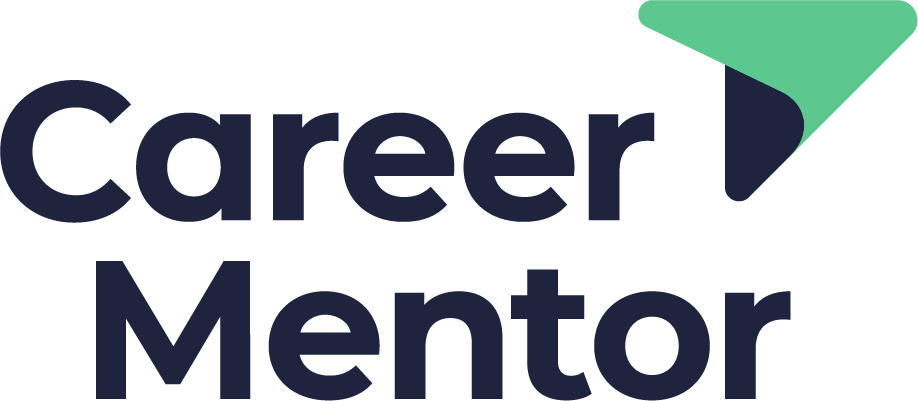Anticipation: an important key to career optimisation
Recently, I watched the Rally championships taking place in Sweden. It struck me just how vital the navigator is for the driver as they race at great speeds over treacherous snow and ice. The navigator’s role is to call out the road ahead before they reach it. Anticipation of what is coming is vital.
The Red Zebra Rule: Why focus beats overwhelm in goal setting
We all know the cliché that a high percentage of New Year’s resolutions fail within a short period of time. Building on that, many ambitious and optimistic goals set at the beginning of the year are missed or forgotten as life gets busy and immediate, urgent tasks take priority. In an effort to reduce feelings of overwhelm, those well-intentioned goals are pushed back, put on hold, and rescheduled for a “better time” that never quite arrives.
Your bonus is not your career strategy: how top Financial Services think long-term
Bonus season can stir all sorts of emotions for financial services professionals. It’s useful to unpack these feelings in a way that equips you for the future of your career. It’s all too easy to read false conclusions or assumptions into the numbers — and that thinking can lead you astray. Successful professionals do not confuse this year’s rewards with long-term career prospects.
Getting shortlisted: how to build a CV that recruiters can’t ignore
Recruiters are often making decisions about you before they’ve even met you. They rely on your CV to decide whether they should invest time in exploring if you could be a viable candidate. If you’re embarking on a job search in 2026 and your CV isn’t up to scratch, you may be rejected before you’ve even said a word.
The good news is that there are some basic principles and rules which, if followed, can significantly improve your chances of being invited to interview. Some of the ideas below will help you turn your CV into a compelling career story that showcases you in the best possible way.
How to answer the question ‘Why should we hire you?’ with confidence
This is a very common question asked, and the way in which you answer it is likely to have a significant impact on the outcome of the job interview. The interviewer will be asking this question to test a variety of things, and given that you can anticipate that it will come up, it’s not a bad idea to prepare for it.
In this short read, we’ll discuss why this question is asked, what the key points are to include in your answer, and some common mistakes to avoid.
Stop job hunting, start boss hunting: the smartest career move you’re not making
When job hunting, many Financial Services professionals focus on sensible things, such as brand name, job title, remuneration, the role itself and perhaps the culture of an organisation that they’d want to join. Those criteria will shape their whole job search campaign. But, perhaps they’re missing a much-overlooked and potentially game-changing component: their future boss. After all, it may be no exaggeration to say that perhaps the biggest influence on the success of your career is the boss that you work for.
Smart networking in the “party season”
Dare I say it’s already that time of year, when there’s a great deal of entertaining, parties to attend, and people to meet. I once knew someone in Financial Services who had such an incredible way with people at social events that it felt like watching a master craftsman at work. He had an enthusiastic energy, was engaged and authentic, showed genuine interest in everyone he spoke to, and had an uncanny ability to strike exactly the right note in conversation. It’s no surprise that he went on to have a very successful career.
What do recruiters say about getting found on LinkedIn?
Recruiters are increasingly using the Recruiter function on LinkedIn to find candidates for role they’re hiring for. This uses enhanced search capabilities to narrow down their list of candidates. With this in mind, what can you do to increase your chances of being found by recruiters, in-house talent acquisition teams, and hiring managers? Naturally, your activity on LinkedIn is certainly important, but for the purposes of this blog, let’s focus on your LinkedIn Profile.
Job Search - Negotiating your remuneration
If you’re at the end of a job search process, the final step is often agreeing on your remuneration package. Finding the right number can be challenging because several factors come into play. Let’s look at what they are so you can find the best approach.
What did Jamie Dimon say about AI and Careers in Financial Services?
I listened to a recent interview on Bloomberg Radio in which Jamie Dimon, CEO of JPMorgan Chase, discussed the impact of AI on the financial services industry. Dimon said that his bank’s $2 billion annual AI investment is already paying for itself through increased productivity: “We know it’s billions of cost savings, and that’s just the tip of the iceberg,” he told Bloomberg. He added, “AI is going to affect jobs — some will be enhanced, some will be eliminated. The shift won’t be painless.”
Internal advocacy — How to champion yourself without alienating others
Progressing in your career requires you to be visible and for your impact on the firm to be recognised and acknowledged. Many professionals shy away from self-advocacy, hoping that all they need to do is work hard and produce results — and that this alone will be enough. Sadly, this isn’t always the case.
So, why do so many people avoid speaking up for themselves, and how can it be done in a culturally calibrated manner that doesn’t alienate colleagues or leadership?
In my experience, there are seven key things to consider.
8 critical steps to take after a job interview
Imagine that every job interview is an opportunity to learn and improve your performance, so that you get better and better at this essential career skill. Not only that, but you also increase your chances of securing the role for which you’re currently interviewing.
How to approach a ‘coffee chat’ that’s really an informal job interview
If you’re invited to meet someone for a ‘coffee’, you might assume that because it’s an informal conversation, your approach and execution can also be casual. I’d suggest that this is a mistake and potentially a wasted opportunity. Even if it’s just a coffee, really it’s an audition - a chance to gain exposure and make a strong impression.
Strategic career planning for mid-career professionals: designing your next chapter with intention
As we know, there are different types of job interviews and, in turn, interview questions. These target different areas of you as a candidate. Broadly, they are: competency, motivation, cultural and selling (to you).
During these interviews, you may be asked questions that may well trip you up. Now, whether or not the interviewer is doing this on purpose isn’t the focus of this short read. We’ll identify three of them and how you can recognise and handle them
Optimise or fade away: Why Financial Services careers demand relentless innovation
In today’s financial services industry—whether in Wealth Management, Capital Markets, Asset Management, or Investment Banking—standing still isn’t an option. Career success now depends on mastering 8 interconnected areas of optimisation, each requiring constant work.
How to handle 3 interview questions that may trip you up
As we know, there are different types of job interviews and, in turn, interview questions. These target different areas of you as a candidate. Broadly, they are: competency, motivation, cultural and selling (to you).
During these interviews, you may be asked questions that may well trip you up. Now, whether or not the interviewer is doing this on purpose isn’t the focus of this short read. We’ll identify three of them and how you can recognise and handle them
From grads to professionals: Does this advice also apply to you?
Quite often at this time of year, I get emails for fantastically talented and very well educated Graduates who now need to make the first jump into their career. I’ll reply and offer advice that I hope will help them. It occurred to me that perhaps there are senior professionals feeling stuck or frustrated with their career, who might see some value in that advice themselves.
The art and science of building soft influence: how to network strategically
It’s difficult enough to get into banking and it’s possible to say that soft influence is a key component in moving up the ladder. Yes, of course, you need to develop your technical skills, gain experience and track record. But building strategic relationships also open doors, creates visibility, and positions you as a leader.
Impact-focused CVs and interview examples
I was recently helping a Coaching Client prepare examples that he might use for an upcoming job interview. I was struck by the word I kept hearing: ‘I’. We agree that this needed some attention, and how to both graciously acknowledge the contribution of others’ as well as one’s own. In this week’s blog, I discuss how to address this in both one’s CV and interview examples.
8 reasons you should consider changing jobs
It seems relatively common for most people to get on with their job, accepting that there will inevitably be some rough with the smooth. Sometimes, we just have to tolerate the downsides of an imperfect work environment. However, should that always be the case? What’s the point at which you should make the decision to walk away?




















